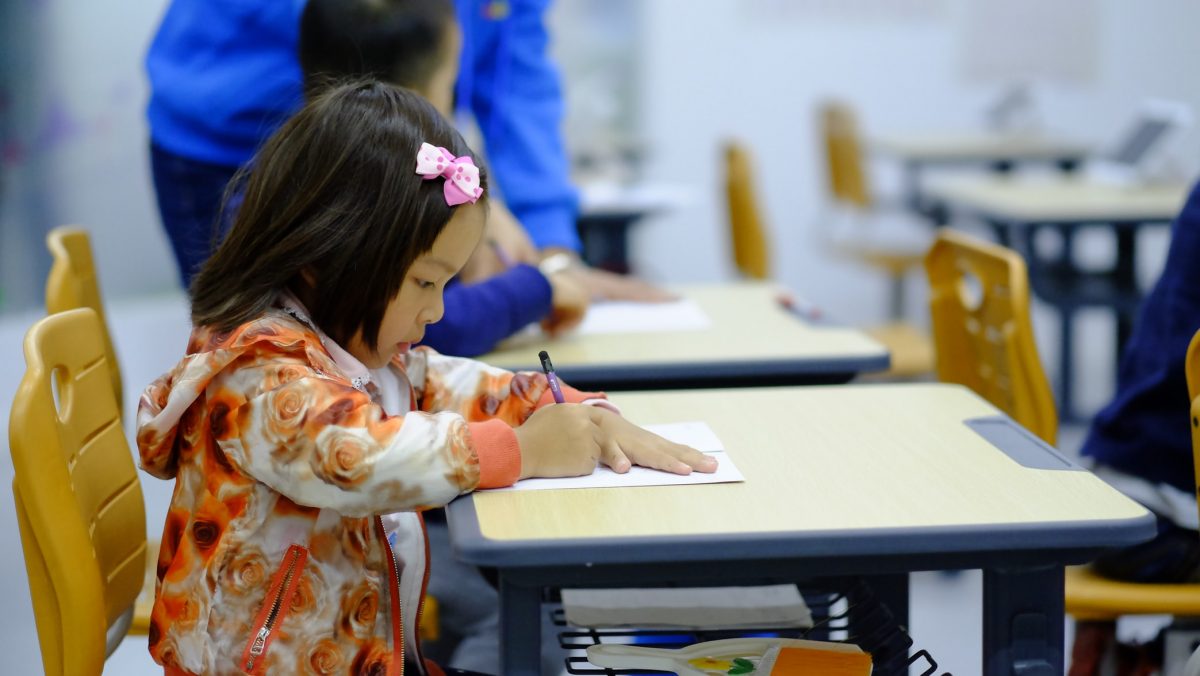 The leaves are changing, the temperature’s dropping, and school is in full-swing across the country.
The leaves are changing, the temperature’s dropping, and school is in full-swing across the country.
By now, you’ve probably met your child’s teacher, been to a program or two, and the house is full of books and half-completed projects.
But this time of year also means another important “first” in the school year – one that may bring on a case of the nerves for kids and their parents…
The Parent-Teacher Conference.
In old television shows, these words would send a chill down a child’s spine as they thought of all the things they may have done that would cause such a meeting.
Nowadays, parent-teacher meetings are common and are mainly held to keep communication open between school and home, as well as give parents an opportunity to help their child succeed.
But they can still be nerve-wracking when a parent is aware that their child is struggling academically or has behavioral issues.
The Child Development Institute shares some tips for making parent-teacher conferences a positive and beneficial experience.
First, it is important to always stay up to date on your child’s assignments, grades, and any information sent home from the school.
We know kids sometimes throw everything in a crumpled mess in their backpacks after a busy day.
While we want to encourage them to be responsible and organized, we often have to help by checking behind them in the early years to make sure we don’t miss something important.
Keep an eye out for notes from the teacher, progress reports, and grades on assignments done at school. This will help you gauge your child’s progress and prepare you for any necessary meetings.
An important aspect of how our children perform in school is how they behave at home. Do they come home from school frustrated or unhappy? Are they particularly quiet or seem to have something on their mind?
By talking each day after school with your child, you’ll be able to identify anything that may have been difficult that day or that they may have struggled with.
And it’s always important to focus on the positive. Make sure that you put a positive spin on anything your child may be struggling with – ask about the good and the bad.
Never dismiss your child’s feelings. It’s common for a child who is struggling in school to say, “My teacher just doesn’t like me.”
While it’s easy for us to say, “That’s not true” or give some other simple response, it’s important to find the reasons behind why your child might say that – for example, they got the lowest score on a project or were pulled aside for disrupting class.
Having a positive mindset makes all the difference.
It’s hard to hear that our child – the person we love most in the world – actually is being disruptive in school or isn’t working as hard as they should.
Or maybe the teacher is starting to uncover signs of something that may be an issue down the road.
It is often our parental instinct to get defensive, or go into denial, when it comes to our kids.
By being open and willing to listen to the teacher – who also has your child’s best interests at heart and spends a great deal of time with them – it will benefit everyone in the long run.
And, let’s face it, sometimes we just don’t have a great bond with our child’s teacher. They may handle things differently than we would, but it is important to be professional, calm, and responsive if we just don’t “click” with them.
Parents know their child better than anyone, but we can sometimes lose the “forest through the trees.”
It’s always helpful to take into consideration someone’s opinion when it comes from a different perspective.
And write your questions down! It’s always helpful to write a list of questions or concerns down on paper, or to email teachers with topics you’d like to discuss with them.
This way, everyone can stay on topic and cover any concerns and plans of action without going off on a tangent. This also helps keep parent-teacher meetings calm and professional.
Above all, if your child has behavioral issues, health concerns, has struggled in the past in certain areas — if you have any worries at all — let your child’s teacher know as soon as you can.
We’re the parents and we know best, but it is important to have a mutual respect between parent and teacher so that the school year runs smoothly for everyone.
Remember, it’s not a contest – it’s about working together to make sure your child is getting everything they need to succeed.
What are some of your tips for successful parent-teacher meetings and communication? Leave us your thoughts.
